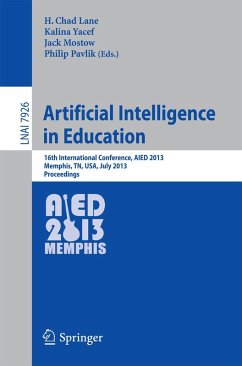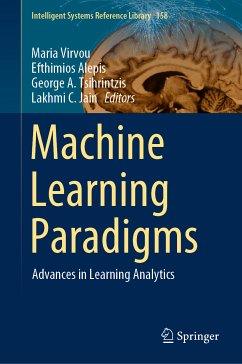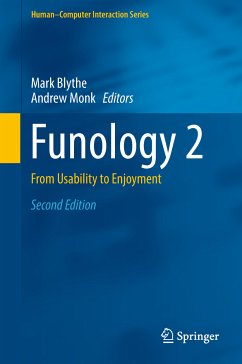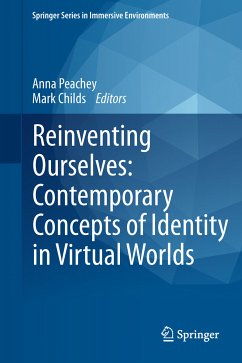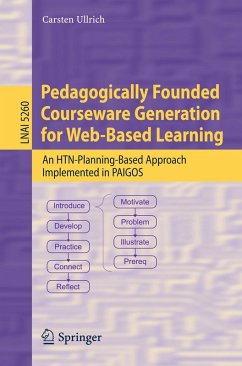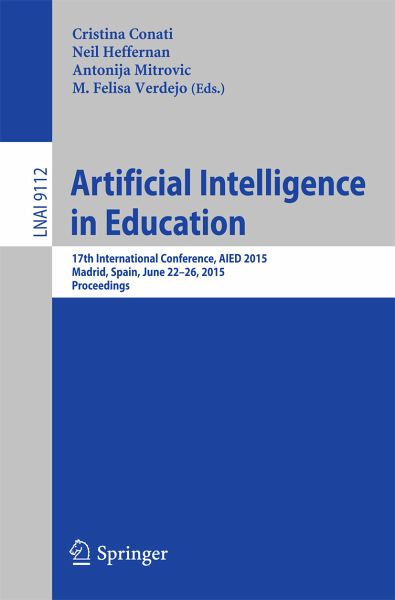
Artificial Intelligence in Education (eBook, PDF)
17th International Conference, AIED 2015, Madrid, Spain, June 22-26, 2015. Proceedings
Redaktion: Conati, Cristina; Verdejo, M. Felisa; Mitrovic, Antonija; Heffernan, Neil
Versandkostenfrei!
Sofort per Download lieferbar
88,95 €
inkl. MwSt.
Weitere Ausgaben:

PAYBACK Punkte
44 °P sammeln!
This book constitutes the refereed proceedings of the 17th International Conference on Artificial Intelligence in Education, AIED 2015, held in Madrid, Spain, in June 2015.The 50 revised full papers presented together with 3 keynotes, 79 poster presentations, 13 doctoral consortium papers, 16 workshop abstracts, and 8 interactive event papers were carefully reviewed and selected from numerous submissions. The conference provides opportunities for the cross-fertilization of approaches, techniques and ideas from the many fields that comprise AIED, including computer science, cognitive and learni...
This book constitutes the refereed proceedings of the 17th International Conference on Artificial Intelligence in Education, AIED 2015, held in Madrid, Spain, in June 2015.
The 50 revised full papers presented together with 3 keynotes, 79 poster presentations, 13 doctoral consortium papers, 16 workshop abstracts, and 8 interactive event papers were carefully reviewed and selected from numerous submissions. The conference provides opportunities for the cross-fertilization of approaches, techniques and ideas from the many fields that comprise AIED, including computer science, cognitive and learning sciences, education, game design, psychology, sociology, linguistics, as well as many domain-specific areas.
The 50 revised full papers presented together with 3 keynotes, 79 poster presentations, 13 doctoral consortium papers, 16 workshop abstracts, and 8 interactive event papers were carefully reviewed and selected from numerous submissions. The conference provides opportunities for the cross-fertilization of approaches, techniques and ideas from the many fields that comprise AIED, including computer science, cognitive and learning sciences, education, game design, psychology, sociology, linguistics, as well as many domain-specific areas.
Dieser Download kann aus rechtlichen Gründen nur mit Rechnungsadresse in A, B, BG, CY, CZ, D, DK, EW, E, FIN, F, GR, HR, H, IRL, I, LT, L, LR, M, NL, PL, P, R, S, SLO, SK ausgeliefert werden.






